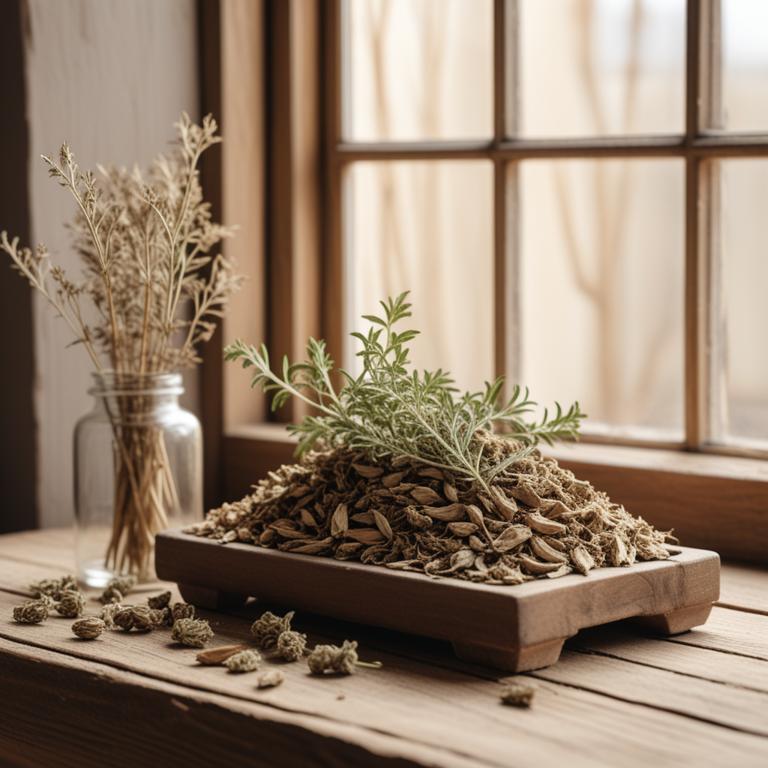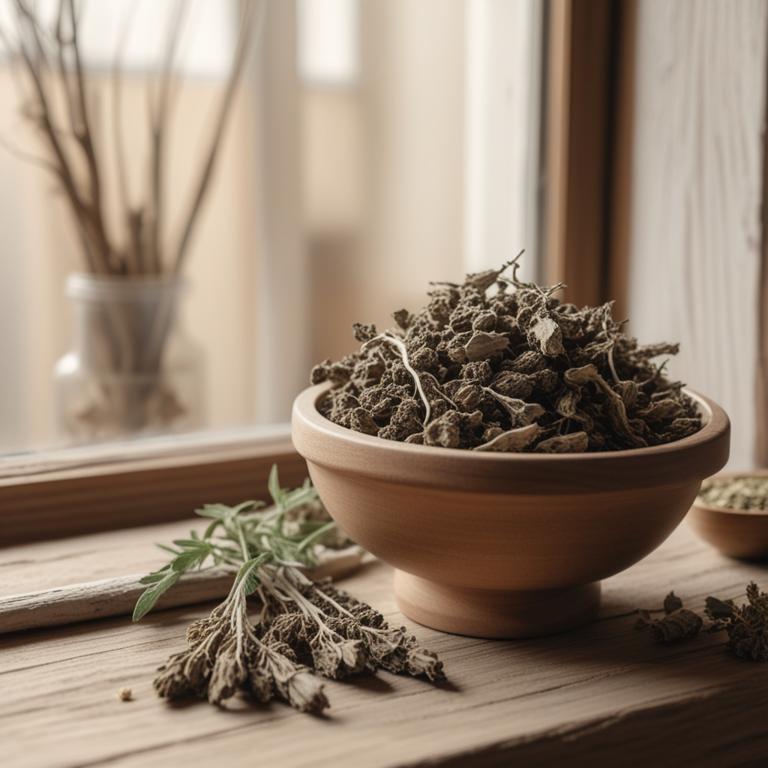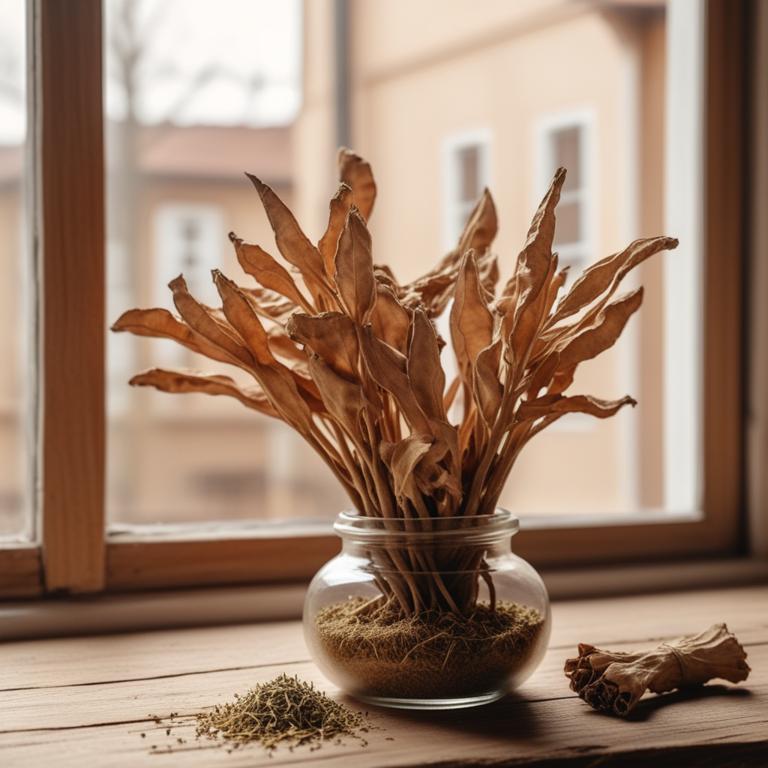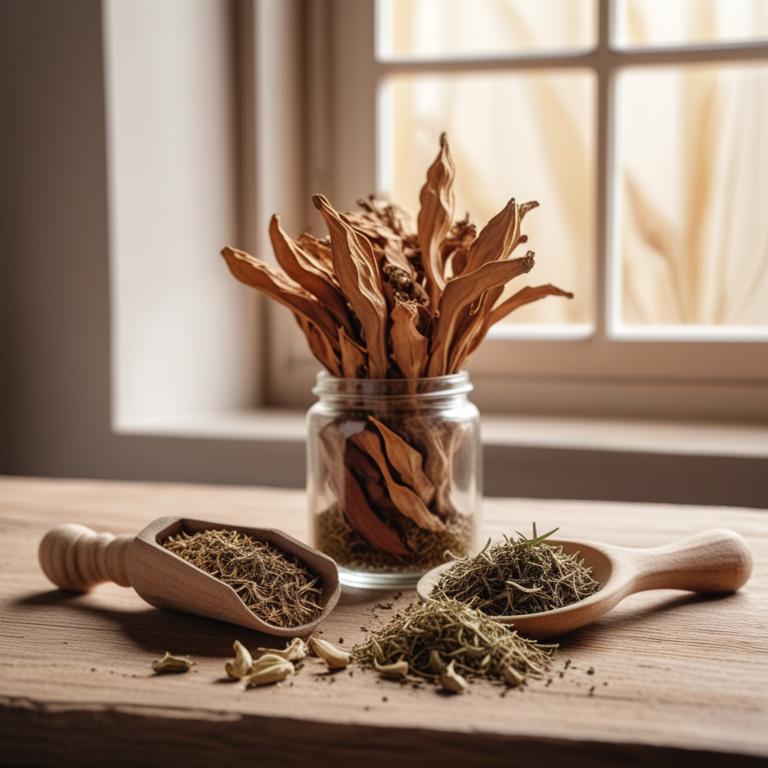Updated: Dec 1, 2024
Arteriosclerosis: Unlocking Causes and Herbal Treatment Options

Arteriosclerosis is a condition where the arteries become hard and narrow, making it harder for blood to flow.
This can cause high blood pressure, heart problems, and even strokes. It's a serious condition that can affect your daily life, making simple tasks feel like a struggle. Arteriosclerosis is often caused by a combination of factors, including poor diet, lack of exercise, and high cholesterol levels. To address arteriosclerosis, some people turn to herbal remedies. Certain herbs, such as garlic, have natural properties that can help lower cholesterol and prevent blood clots.
Ginkgo biloba, on the other hand, can improve blood flow and reduce inflammation in the arteries. Turmeric, with its active compound curcumin, has anti-inflammatory properties that can help reduce the risk of heart problems. Herbal teas, such as a combination of hawthorn and dandelion root, can be a soothing way to incorporate these herbs into your daily routine. You can also take supplements in the form of capsules or tinctures. Some herbalists recommend making a tea by combining equal parts of hawthorn, dandelion root, and ginger to help lower blood pressure and improve circulation.
As with any new remedy, it's essential to consult with a healthcare professional before making any changes to your treatment plan.
Table of Contents
- What are the causes of arteriosclerosis in medical terms?
- What benefits can be expected from using herbs for arteriosclerosis treatment?
- What are the top herbal remedies for arteriosclerosis?
- Which herbal extracts are used to manage arteriosclerosis?
- Are there any herbs that should be avoided in arteriosclerosis?
- FAQ
What are the causes of arteriosclerosis in medical terms?
The main causes of arteriosclerosis are complex and multifaceted, but they can be broken down into a few key factors.
Hypertension, or high blood pressure, is a major contributor to arteriosclerosis. When blood pressure is consistently too high, it causes the walls of the arteries to become thicker and stiffer, making it harder for blood to flow through them. This can lead to a buildup of plaque and the narrowing of the arteries, which can eventually lead to heart attacks and strokes. Another significant cause of arteriosclerosis is dyslipidemia, or abnormal levels of cholesterol in the blood. High levels of low-density lipoprotein (LDL) cholesterol, also known as "bad" cholesterol, can accumulate in the walls of the arteries and contribute to the formation of plaque.
On the other hand, high levels of high-density lipoprotein (HDL) cholesterol, or "good" cholesterol, can help to remove excess cholesterol from the arteries and reduce the risk of arteriosclerosis. Diabetes is also a major risk factor for arteriosclerosis. People with diabetes often have high levels of blood sugar, which can damage the blood vessels and increase the risk of plaque buildup. Additionally, people with diabetes are more likely to have high blood pressure and high cholesterol levels, which can further contribute to the development of arteriosclerosis. Finally, smoking is a significant cause of arteriosclerosis. Smoking damages the blood vessels and reduces blood flow to the heart, making it more difficult for the heart to function properly.
Smoking also increases the risk of high blood pressure and high cholesterol levels, which can contribute to the development of arteriosclerosis.
What benefits can be expected from using herbs for arteriosclerosis treatment?
Using herbs for arteriosclerosis can be very beneficial.
These plants have been found to help lower high blood pressure, which is often a major contributor to this condition. By reducing blood pressure, they can decrease the strain on blood vessels and reduce the risk of blockages. They may also help prevent the formation of blood clots, which can cause strokes and heart attacks.
Some herbs may even help improve blood circulation, allowing more oxygen and nutrients to reach damaged areas. Additionally, they can help lower levels of bad cholesterol and triglycerides, which are often found in people with arteriosclerosis. By reducing inflammation and improving overall health, these herbs can provide a natural way to manage arteriosclerosis symptoms and even slow down disease progression.
They may also reduce the risk of other related health problems, such as heart failure and kidney disease.
What are the top herbal remedies for arteriosclerosis?

Herbs have been used for centuries to help with arteriosclerosis, a condition where the arteries become narrow and hard.
Let's look at some of these herbs that can help. Ginkgo biloba is one of the oldest living tree species and its leaves have been used for centuries in traditional medicine. It helps by improving blood flow and reducing inflammation in the arteries. This makes it easier for blood to flow through the narrow arteries and reduces the risk of heart disease. Panax ginseng, also known as Asian ginseng, is another herb that has been used for centuries. It helps by improving blood circulation and reducing inflammation in the arteries. It also helps to lower blood pressure, which reduces the strain on the arteries. Salvia miltiorrhiza, also known as Chinese sage, is an herb that has been used in traditional Chinese medicine for centuries.
It helps by improving blood flow and reducing inflammation in the arteries. It also helps to lower blood pressure and reduce the risk of heart disease. Curcuma longa, also known as turmeric, is an herb that has been used for centuries in traditional Indian medicine. It has anti-inflammatory properties that help to reduce inflammation in the arteries. It also helps to improve blood flow and lower blood pressure. Rosmarinus officinalis, also known as rosemary, is an herb that has been used for centuries in traditional Mediterranean medicine. It helps by improving blood flow and reducing inflammation in the arteries. It also helps to lower blood pressure and reduce the risk of heart disease. These herbs work by improving blood flow, reducing inflammation, and lowering blood pressure.
This helps to reduce the strain on the arteries and reduce the risk of heart disease.
Which herbal extracts are used to manage arteriosclerosis?
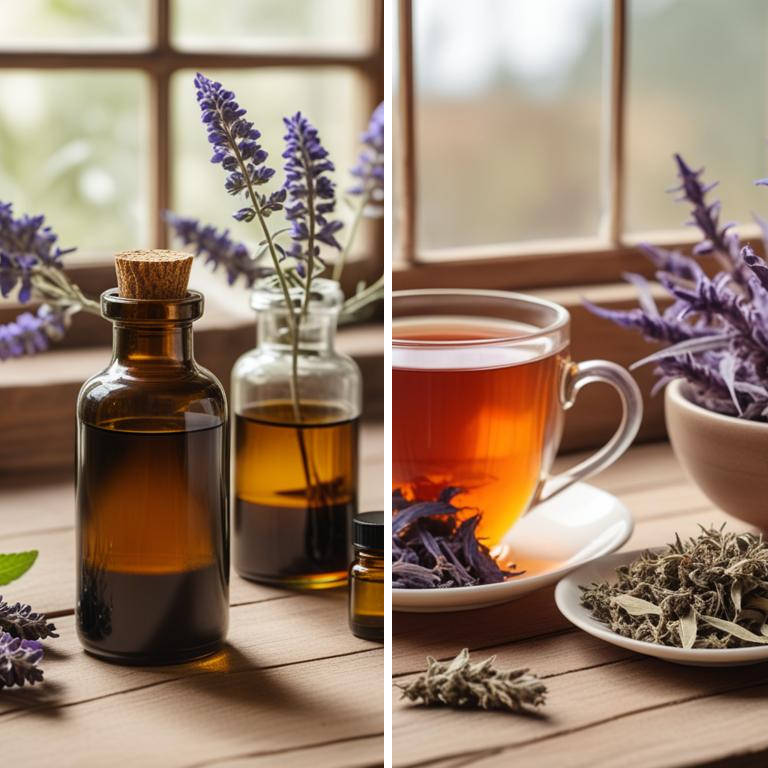
Herbal preparations can help with arteriosclerosis, a condition where arteries get hard and narrow.
Capsules made from herbs like Ginkgo biloba can be good because they improve blood flow to the brain and other organs. This helps keep the arteries flexible and healthy. A decoction of herbs like hawthorn can be beneficial because it helps relax the muscles in the artery walls, making them more flexible and less likely to harden.
Tinctures made from herbs like garlic can be good because they help lower cholesterol levels in the blood, which can contribute to the hardening of arteries. Herbal teas, like those made from green tea or turmeric, can be good because they have antioxidants that help reduce inflammation in the body, which can contribute to the development of arteriosclerosis. An herbal infusion, like one made from bilberry, can be beneficial because it helps improve blood flow and reduce blood pressure, which can help keep the arteries healthy.
These herbal preparations can be used in addition to medical treatment, but it's always best to talk to a doctor before trying them.
Additional Resources:
Are there any herbs that should be avoided in arteriosclerosis?
If you have arteriosclerosis, it's best to limit or avoid using certain herbs that can make blood pressure or heart problems worse.
Paeonia lactiflora, also known as Peony, can lower blood pressure, which might be a problem if you already have low blood pressure due to arteriosclerosis. Astragalus membranaceus, or Astragalus, can also lower blood pressure and may interact with certain medications. Lavandula angustifolia, or Lavender, is not typically a concern, but it can cause blood pressure to drop even further if you're already experiencing low blood pressure.
Vitex agnus-castus, or Chasteberry, can affect hormone levels and may interact with certain medications that treat heart conditions. It's also possible that Zingiber officinale, or Ginger, can thin the blood, which may be a problem if you're taking blood thinners or have bleeding issues due to arteriosclerosis. However, it's worth noting that ginger can also help with inflammation and may be beneficial in some cases.
If you're using any of these herbs, be sure to talk to your doctor or a qualified healthcare professional about the potential risks and interactions.
FAQ
Are there any specific herbs that can prevent arteriosclerosis?
Some herbs, like hawthorn and turmeric, may help prevent arteriosclerosis.
Hawthorn is thought to improve blood vessel function and reduce blood pressure. Turmeric, with its active compound curcumin, has anti-inflammatory properties that may prevent damage to the blood vessels.
These herbs have been traditionally used to support heart health, but more research is needed to confirm their effectiveness.
Is it safe to use herbal remedies for arteriosclerosis during pregnancy?
Using herbal remedies for arteriosclerosis during pregnancy is not recommended.
Some herbs may be too strong and affect the baby's health. Arteriosclerosis is a serious condition, and herbal remedies might not be effective in treating it.
It's best to talk to your healthcare provider about safe treatment options during pregnancy.
Are there any herbs that can reduce the frequency of arteriosclerosis?
Turmeric contains a compound called curcumin, which has anti-inflammatory properties that may help reduce the risk of arteriosclerosis.
Ginger, rich in antioxidants, can also help lower blood pressure and prevent the buildup of plaque in arteries.
These herbs may help slow the progression of the condition.
Can i combine different herbal remedies for arteriosclerosis?
You can try combining different herbal remedies for arteriosclerosis, but be cautious.
Some herbs may interact with each other or have opposite effects. For example, ginkgo biloba may increase blood flow, while hawthorn may help lower blood pressure.
Monitor your body's response and adjust the combinations as needed to avoid any adverse effects.
Related Articles
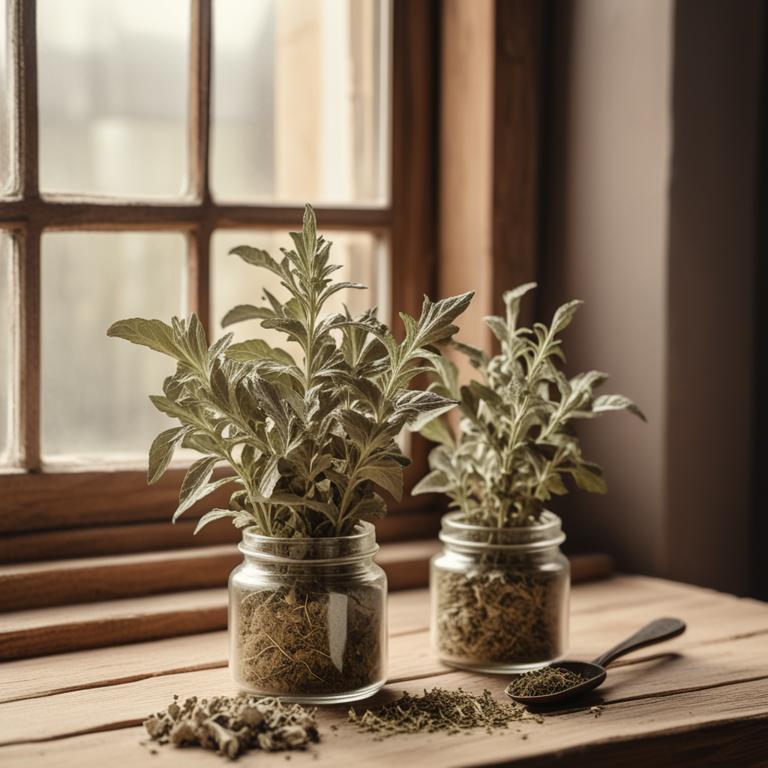
Natural Treatments for Congestive Heart Failure: Medicinal Herbs and Herbal Preparations
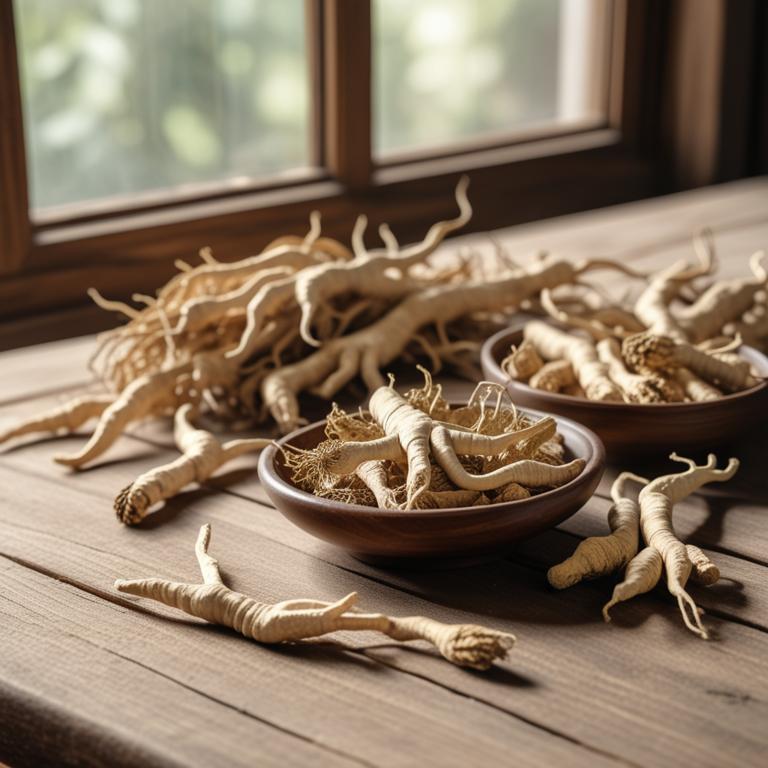
Overcoming Low Blood Pressure: Causes, Herbal Remedies, and Effective Preparations

Varicose Veins: Causes, Medicinal Herbs, and Effective Herbal Preparations
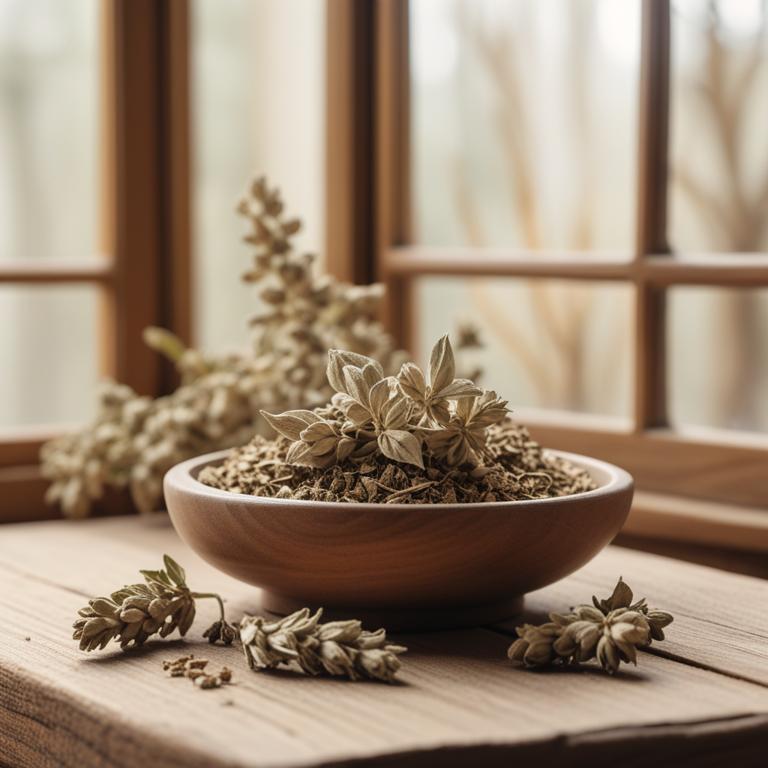
Hypertension and Herbal Remedies: Causes and Medicinal Herbs for Treatment
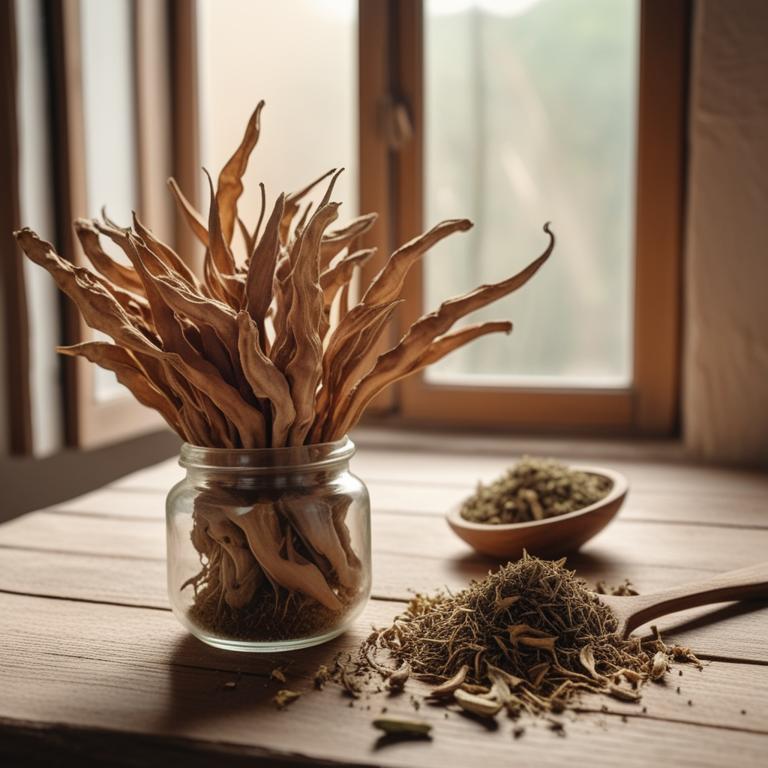
Gum Infection Causes and Medicinal Herbs for Natural Relief
